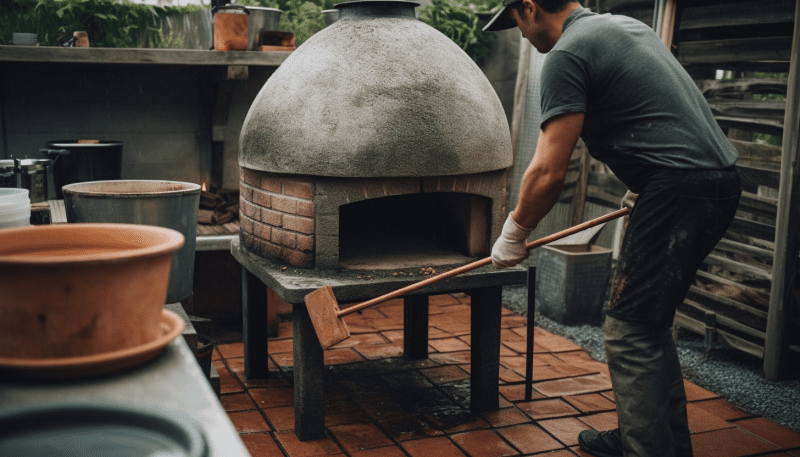When it comes to the question of "What oil should I use when cooking?", it all depends on what you're making and how you plan to prepare it. Different oils bring different flavors and benefits to the table, so it’s good to know your options. Here are some popular cooking oils and when to use them:
When thinking about "What oil should I use when cooking," don't forget to consider the health aspect too. Oils like olive and avocado are excellent for you, while some other oils might not have the same benefits. It’s about finding a balance between flavor, cooking method, and health. Just remember, whatever oil you pick, it’s all about bringing the best taste to your meals!
Common Cooking Oils Explained
When you're asking yourself, "What Oil Should I Use When Cooking?", it can definitely feel overwhelming with so many options available. Each type of oil has its own unique flavor and properties, making it more suited for certain dishes than others. Let’s break down some common cooking oils to help you choose the right one for your kitchen.
Olive Oil: A staple in many homes, olive oil is great for sautéing and drizzling over finished dishes. It's packed with healthy fats and adds a nice flavor, especially extra virgin olive oil. Just keep in mind that it has a lower smoke point, so it’s best for medium heat cooking.
Canola Oil: This oil is incredibly versatile and has a high smoke point, making it perfect for frying and baking. It has a neutral flavor, which means it won’t overpower your dish. If you’re looking for an oil that’s affordable and dependable, canola is a solid choice.
Coconut Oil: If you're aiming for a tropical twist in your cooking, coconut oil can be your go-to. It works well for baking and sautéing, especially in sweet dishes. Just remember that it does have a distinct coconut flavor, so keep that in mind based on what you’re cooking.
Avocado Oil: With one of the highest smoke points, avocado oil is fantastic for high-temperature cooking like grilling or frying. It's rich in monounsaturated fats and has a subtle flavor. This oil is a great option if you want something a little more nutritious without compromising on taste.
Health Benefits of Different Oils
When diving into the question, "What Oil Should I Use When Cooking?" it helps to know a bit about the different oils and the health benefits they bring to the table. Each type of oil has its unique flavor, smoke point, and nutritional profile, making them better suited for certain cooking methods and dishes.
Olive Oil: A favorite among many home cooks, olive oil is packed with healthy monounsaturated fats. It’s great for sautéing and is perfect for salad dressings. Extra virgin olive oil really shines when used raw or in low-heat cooking. Beyond its great flavor, it can support heart health due to its rich antioxidant content.
Coconut Oil: If you're looking for a tropical twist, coconut oil might be your go-to. This oil is high in saturated fats, particularly medium-chain triglycerides (MCTs), which some studies suggest may help with energy and metabolism. It works well for baking and stir-frying but has a distinct flavor that can change the dish's profile, so use it wisely.
Avocado Oil: Another great option for "What Oil Should I Use When Cooking" is avocado oil. It's rich in monounsaturated fats and has a high smoke point, making it ideal for frying and grilling. Its mild taste lets the flavor of your ingredients shine while still boosting your dish’s nutrition.
Canola Oil: If you're after something neutral, canola oil is a reliable choice. It has a relatively high smoke point and is often a good option for baking and frying. While it's low in saturated fat, be mindful of the quality; opting for organic, cold-pressed versions can help ensure you’re getting the best health benefits.
Tips for Storing Cooking Oils
When it comes to cooking oils, proper storage can make a big difference in flavor and freshness. Here are some friendly tips to keep your oils in top shape. After all, when you’re budgeting your time and ingredients, the last thing you want is to reach for a stale bottle!
First things first, keep your oils in a cool, dark place. Light and heat can break down the oil, leading to off-flavors or worse, rancidity. So, skip the sunny windowsill and opt for a cupboard or pantry instead. A kitchen drawer might also be a good spot, just as long as it stays cool!
Also, make sure to keep the lids tightly closed. Air can sneak in and mess with the oil's freshness. If you've got multiple bottles, consider labeling them with the date you opened them. This way, you can easily track how long they’ve been hanging around.
Another handy tip is to avoid storing oils near strong-smelling foods or spices. Oils can easily absorb those aromas, which may not be what you want when cooking. If you're wondering, "What Oil Should I Use When Cooking," start with oils that are neutral in flavor for everyday meals, but make sure they’re stored right to retain their goodness!
Lastly, consider the type of oil you’re using. Oils like olive oil or avocado oil have shorter shelf lives compared to things like canola or peanut oil. Knowing this can help you decide when to restock or how to use them up appropriately. Keeping your oils fresh ensures you get the best taste in every dish!


